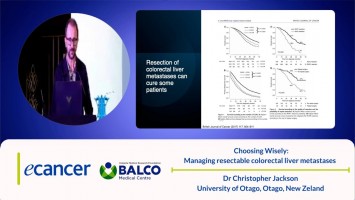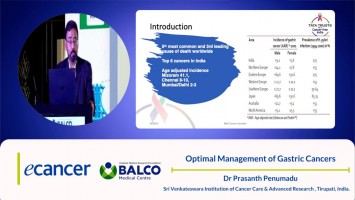The TRIPLETE study, a [?? ] 2 study, intensified treatment in RAS and BRAF wildtype metastatic colorectal cancer. We know that doublet chemotherapy, FOLFOX or FOLFIRI, in combination with an anti-EGFR agent is the standard treatment for patients with these characteristics but FOLFOXIRI in RAS or BRAF-mutated colorectal cancer is a standard option in combination with bevacizumab. So we tried to intensify the treatment also in patients with RAS and BRAF wildtype metastatic colorectal cancer.
What was the methodology and what were the findings?
The study’s primary endpoint was objective response rate. So the study is powered on overall response rate. But in this final analysis we presented the overall survival data that was positive data.
What are the clinical implications of these findings?
The study unfortunately was a negative study because the primary endpoint was objective response rate. But overall survival data, that was very good because the difference between FOLFOXIRI plus panitumumab as compared to FOLFOX panitumumab in median value was 7.8 months of benefit from the triplet.
Maybe this should reopen the possibility to do triplet plus panitumumab in patients with RAS and BRAF wildtype metastatic colorectal cancer, especially if we make altogether the data from other trials that study and combine triplet plus anti-EGFR that are still ongoing that are still immature in terms of overall survival data.








